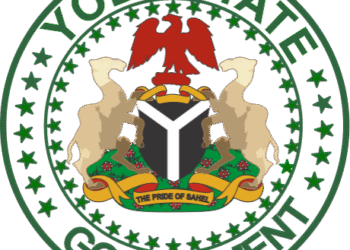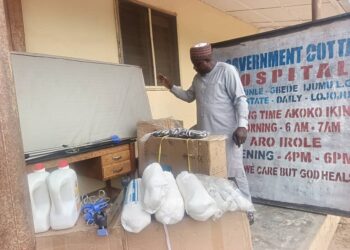Nigeria Centre for Disease Control and Prevention (NCDC) , has said that Edo, Ondo, and Bauchi states account for 84 per cent of Lassa fever infection in the country.
The Director-General, NCDC, Dr. Ifedayo Adetifa, said this in an interview in Abuja on Sunday.
Adetifa said that between January 2 and 15, the country recorded 369 suspected cases of Lassa fever, adding that 105 of this number were confirmed positive from 30 LGAs in 10 states.
He said the 10 states included Ondo, Edo, Ebonyi, Bauchi, Benue, Kogi, Imo, Oyo, Plateau and Nasarawa.
The NCDC boss said there had been seven deaths with a Case Fatality Rate, CFR, of 6.7 per cent in the country.
He said since 2017, the NCDC, through the Lassa Fever Technical Working Group, TWG, had been been offering support to all states and responding to Lassa fever, especially the high-burden states of Edo, Ebonyi and Ondo.
”Support offered includes capacity building and training healthcare workers on infection prevention and control, clinician training on Lassa fever case management (including the provision of Ribavirin, consumables such as intravenous fluids, antibiotics, personal protective equipment (PPE), body bags, etc.),
“The development and dissemination of protocols and guidelines, the set up and maintenance of a network of laboratories for Lassa fever diagnosis (including training, maintaining quality management systems, provision of all consumables required for testing). As well as risk communication and community engagement activities to raise awareness,” he said.
According to Adetifa, at the end of November 2022 and ahead of the projected rise of Lassa fever cases, the NCDC prepositioned supplies for case management, infection prevention and control and laboratory diagnosis, among others in all historical Lassa fever hotspots including Edo.
He said that in December 2022, the agency in collaboration with partners, Federal and state-level stakeholders successfully conducted the finalisation and validation of a five-year strategic plan to reduce the Lassa fever fatality ratio in Nigeria to less than 10 per cent.
The NCDC boss said that in the last six years of the Lassa fever response in the country, there had been an establishment of Public Health Emergency Operations Centres (PHEOC) to ensure effective multi-sectoral coordination for early containment of outbreaks.
“Timely deployment of multi-sectoral National Rapid Response Teams (NRRT) on request. Yearly distribution of response commodities medicines (Ribavirin) and personal protective equipment (PPE), social behaviour change communication (SBCC) materials, thermometers, tents, to Epidemiology Departments of State Ministries of Health and treatment centres.
“Routine support of testing state laboratories with testing kits, reagents and consumables. Support for engagement of contact tracers and supervisors for enhanced surveillance and active case search.
“Support designated treatment centres with equipment such as ambulances, dialysis machines, medicines, PPE, generating sets, etc. Deployment of surge staff (healthcare workers) to support overwhelmed treatment centres,” he said.
According to him, there has been training and retraining of healthcare workers on Lassa fever response, case management and IPC as well as development and dissemination of Lassa fever guidelines on case management, Infection Prevention and Control (IPC), preparedness and response.
“Implementation of targeted rodent control measures in high-burden LGAs in collaboration with the World Health Organization and Federal Ministry of Environment. Dissemination of alert and advisory letters to Commissioners of Health to institute appropriate response and preparedness measures. (NAN/vitalnewsngr.com)






















